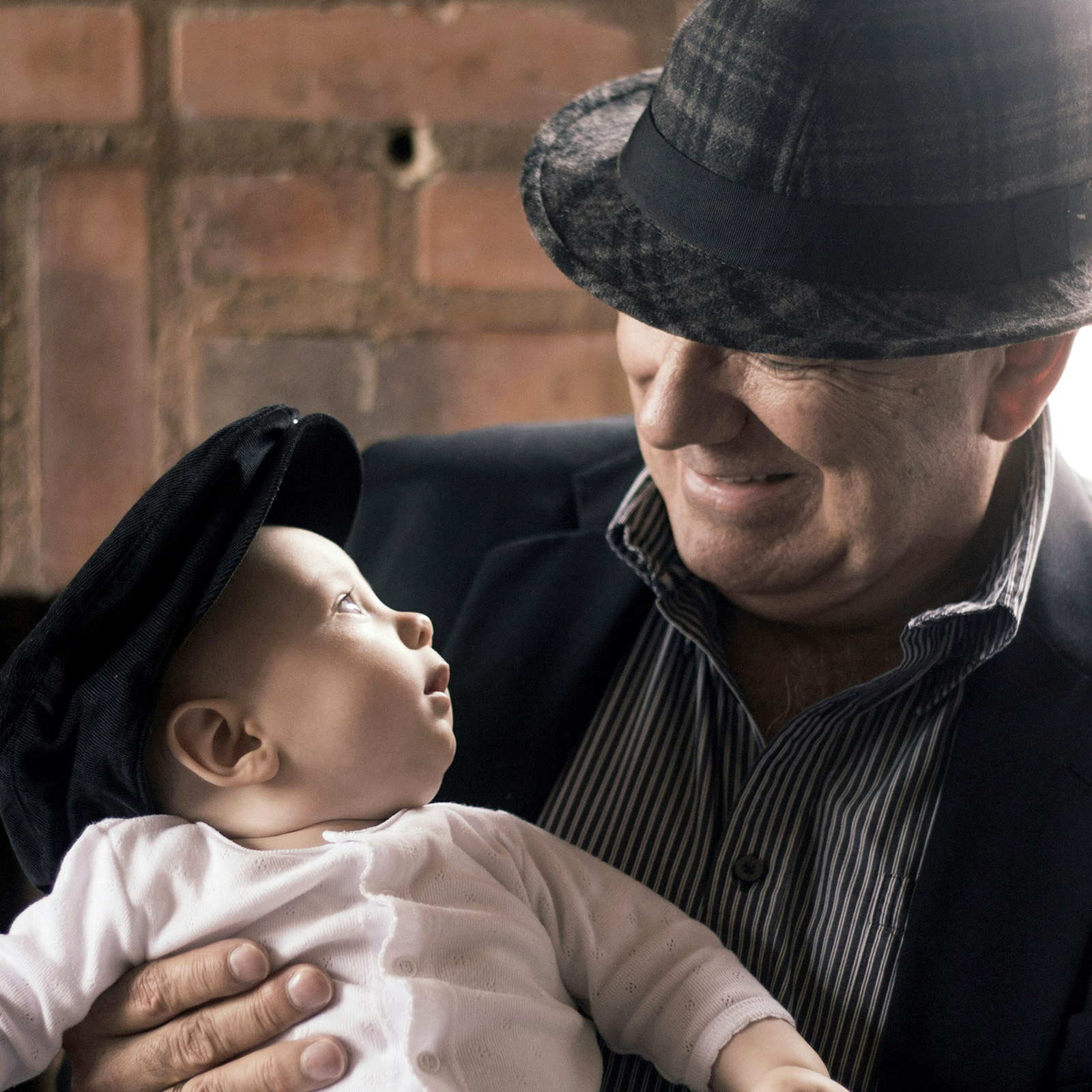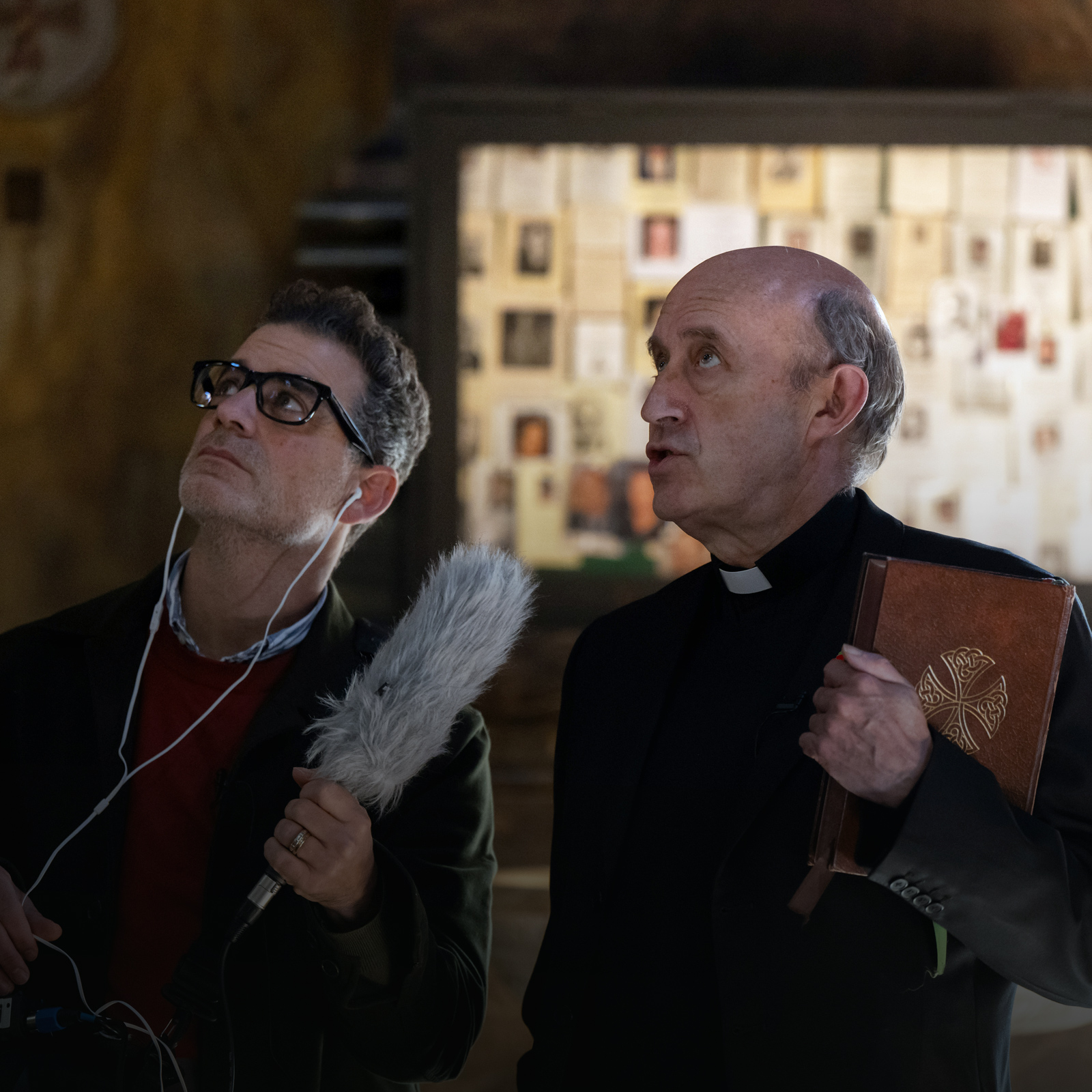On today's Catholic News podcast, Archbishop John Wilson joins us to talk about the launch of CARITAS Southwark - a new diocesan Caritas social action charity to help those in need across the south east.
Archbishop Wilson is keen to work collaboratively:
"This is not about a takeover. This is about creating a network whereby there can be a real celebration of good practise, and where new initiatives, especially in parishes and schools, can find support and direction from existing organisations and charities within the church, so that our diocese, within which there is enormous social need, can really start to put the practical gospel of love, of neighbour into practise in a new way.
"Starting small. We're sowing little seeds, but from little seeds come mighty oaks. And mighty oaks give shelter, especially to those who suffer and are in pain and in need. We come with faith and we come with a real desire to sow seeds today that will bear fruit in our practical love of those in need."
You can subscribe to our Catholic News podcasts via Apple Podcasts, Amazon/Audible or Spotify.
This is Archbishop John Wilson, the Archbishop of Southwark, and I'm very pleased to share news today of the launch of our Caritas Southwark network, which is a new thing for us in the Archdiocese. Today, thanks be to God, following a long process of consultation with people in our parishes and our schools, we've been able to formally launch Caritas Southwark as an agency of the diocese to put the Gospel into practise - to make the Gospel flesh. To reach out to the weakest and the poorest and those in need in our communities and ask the question, what can we do? How can we serve? How can we be the loving presence of Christ, that sees with the heart of Christ and the eyes of Christ, with the compassion of Christ, and meets the needs of people - whether it's to do with food poverty or issues around refugees, whether it's things to do with care of the elderly, we've got projects that we want to explore that look at how we help our young people, especially those who might be tempted, into areas that involve knife crime.
We're very, very keen to work collaboratively and in partnership and also to explore new ways of how we might work together. We've got very good relationships with Pact, for example, that works with prisoners in supporting the link between prisoners and their families. We've got good links with the Manna Society (a day centre for homeless people near London Bridge), which is based here in the diocese and which the diocese already supports.
So this is not about a takeover. This is about creating a network whereby there can be a real celebration of good practise, and where new initiatives, especially in parishes and schools, can find support and direction from existing organisations and charities within the church, so that our diocese, within which there is enormous social need, can really start to put the practical gospel of love, of neighbour into practise in a new way. Starting small. We're sowing little seeds, but from little seeds come mighty oaks. And mighty oaks give shelter, especially to those who suffer and are in pain and in need. We come with faith and we come with a real desire to sow seeds today that will bear fruit in our practical love of those in need.
In terms of the challenges to our Caritas project, they're two-fold. One is to actually get enough people to be inspired - to be involved. That's why we need volunteers from our parishes and from our schools working collaboratively with other partner organisations. But we need people to be fired up with a love for Christ that wants to put their faith into action, into practise.
We need people to realise the skills that they have and the talents that they have, and to hear their baptismal call. Because this is not to be a clericalist thing. This really needs the baptised in our diocese, the lay people, the lay faithful of our diocese, to really hear the call of the Lord Jesus, to put their faith into action in a most beautiful way.
One of the challenges is that we need to be able to raise up a desire within people to put faith into practise. A second challenge is to begin to discern the areas where need is to be met. So in our diocese, which is a big diocese across all of South London and Kent and the Medway unitary authority as well, there is great social need. There is poverty in parts of South London, there is homelessness. There are all kinds of ways in which people are isolated, they feel lonely, they find it difficult to access services, many of them are struggling.
There are one-parent families, there are people living with real material needs who can't provide enough electricity and heating for their house, who can't clothe their children. So there's a level at which we can really build relationships on a small scale, one by one, to reach out to people who are in practical need.
Compare that, for example, with parts of Kent. Dover is in our diocese. A few months ago, I visited the lifeboat station at the Port of Dover and heard of the incredible work that they have been doing to rescue people who have taken an incredible decision to try and escape persecution, hardship, war in many cases, and cross the Channel. This has been a source of great controversy. There are great political issues at stake here, which to me, really don't face the crucial issue, which is we have people before us who are in desperate need. And if we lose sight of the desperate need of the people, we lose sight of our conscience as a country. So it was incredible to hear the testimonies of those who work on the lifeboats in Dover. They simply said, "Our mission has always been and will always be to save people in danger at sea. We don't ask who they are or where they're from."
I was really, really impressed by that. And they faced a lot of criticism, the lifeboat association, the RNLI, for this work, and to my mind, they are doing incredible work, as are the churches and different community organisations that work to welcome and support refugees in that part of the world.
So, for me, it's really, really important that when we think about the needs of the other, that other has a face and that other has a name and that other has a family, that other could be me one day, it could be you one day. And if we lose sight of that, we may as well just give up and stop living. Because if we lose sight of our common humanity, what is the point of being alive?
It's absolutely essential that we recognise that we are our brother and sister's keeper. At the heart of any issue is a person. And if we lose sight of the person, then we begin to work in a way that is inhuman and that is intolerable. We must always, at the heart, see the person and value and love the person.
The challenges across our diocese are varied. What we want to begin to do is to discern how we move forward locally, using the talents in our schools and our parishes to provide for our community beyond our churches, beyond those who worship. This is not just to be something that is at the service of ourselves. We want to be present in our communities with the love of Christ. However those needs manifest themselves and whatever people come with those needs, we want to be able to say, we will do our best to help.
Our local parishes work in partnership with local refugee groups. And that's very, very important. I think this needs a collaborative approach. It needs people to stand together and it needs people to speak together. And I think the key response is always to cut through politics. Politics matter, of course they do, but politics have to be at the service of the human person and the dignity of the human person.
Politics that isn't at the service of the dignity of the human person is inauthentic. Of course, there are other considerations in all of this. I appreciate that. I'm not naïve. But when a person is in need, the presenting requirement is that we reach out to them.
That, to me, is the fundamental truth of the Gospel. That when a person is in need, my response as a Christian, my response as a human being, is to reach out in love and in support. And there will be issues around all of that which will need resolution. They need humane resolution, not simply isolating people or cutting them off or rejecting them or transporting them elsewhere. That doesn't help anybody. Global solutions need countries to speak to each other and they need partnership and they need a compassion that puts into practise real solutions, not simply knee-jerk reactions that seemingly solve a problem at the expense of the dignity of human life. That, to me, is just preposterous.
The invitation for people to collaborate with us is very, very open. If you're listening to this message and you think, "Well, look, I'd like to do something for people in need," please get in touch with your local parish, please get in touch with our Caritas office. If you have a skill that you want to share, whether you are a person of faith or not, if you have a big heart and you want to put love into practise, then we'd be delighted to work with you. This is about us together in our communities for the common good, pooling our resources, pooling our talent, sharing what we have, giving of what we have so that others who don't have can receive more - simple as that.
For me, there's a very basic philosophy at work here, which is sometimes we can do something which is never going to be everything but it's more than nothing. Nothing is not the answer. Something is the answer - even if it's not everything. So we have to have vision and we have to be able to look beyond the impossible to find the possible.

Ahead of the World Day of Prayer for Grandparents and the Elderly, Bishop David Evans has spoken about the need for us to value...

In December 1916, deep in the Sahara, an unknown French hermit was shot through the head and dumped in a ditch. He was 58....

November is a very important month in the Catholic calendar. It's the month when we pause on many occasions to remember our friends and...